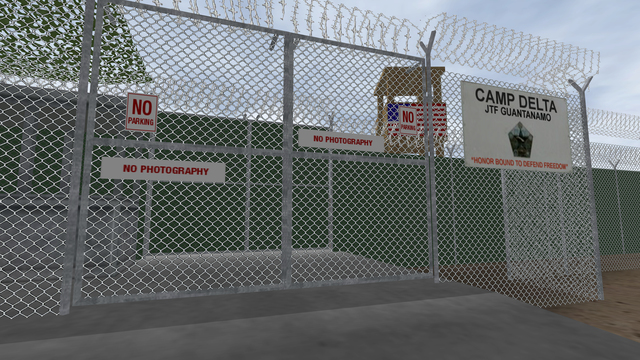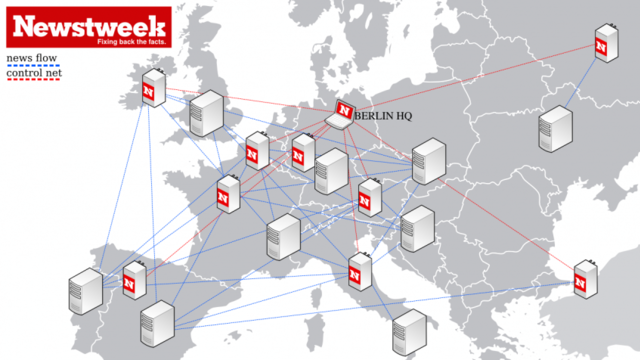Search results for 'infrastructure'
Final declaration of the FC⚡MC
Instigating final declaration of the FC⚡MC
In the middle of the protest, something new emerged:
Final declaration of the FC⚡MC - International Media Center during G20 in Hamburg
The Twitter Revolution Must Die
Have you ever heard of the Leica Revolution? No?
Contain This! Leaks, Whistle-Blowers and the Networked News Ecology
WikiLeaks is one of the defining stories of the internet, which means
by now, one of the defining stories of the present, period. At least
four large-scale trends which permeate our societies as a whole are
fused here into an explosive mixture whose fall-out is far from clear.
Putting the Demo Back in Democracy: March Against the Moguls.
That guerrilla video is now the subject of historical reflection is
probably a sign of its demise. There has been a recent flurry of
archival and publishing activity centering on experiments made in the
'70s. In 1997, the Chicago-based Video Data Bank released Surveying the
First Decade, a compilation of work from the early days of video, and
Oxford University Press published Deirdre Boyle's Subject to Change:
Guerrilla Television Revisited, the definitive study of the video
movements of the late 1960s and '70s. These reflections on the utopian
impulse in early video provide an opportunity to think about the
present state of media in this country, in particular those movements
that have attempted to create electronic space for non-commercial views
that run counter to the mainstream.
The Revenge of Print
In the wireless era, is the paper medium simply passé for the work of activists? Are zamizdat, fanzines and political magazines just good for historians? After the mid-nineties zine crisis due to a sudden rise of the cost of paper and the advent of the Internet, the actual role of magazines seems to be re-defined and still strategical for the circulation of ideas.
ReadHolograms for Freedom
The Citizens’ Securities Law’s Reform is an attack on the right of freedom of assembly. This measure restricts citizens’ liberties, and criminalizes their right to protest. Turning a right into an offence for which you can be pursued, detained, and judged.
To respond to this injustice and to show the future will have to face if this bill continues its course, we saw the need to carry out a different kind of protest that would allow our demands to become unstoppable: the first hologram protest in history.
A massive protest, through which we will demonstrate, that despite the trammels imposed by the government, they will not silence our voices, and even if we have to turn ourselves into holograms, we will keep on protesting.
www.hologramasporlalibertad.org/en.html#project
Wikileaks and Freedom, Autonomy and Sovereignty in the cloud
"We have to be very attentive and united at a state level to fight
against what is a threat to democratic authority and sovereignty,"
-
French government spokesman Francois Baroin speaking out against
wikileaks releasing US diplomatic cables.
"Governments of the
Industrial World, you weary giants of flesh and steel, I come from
Cyberspace, the new home of Mind. On behalf of the future, I ask you of
the past to leave us alone. You are not welcome among us. You have no
sovereignty where we gather."
- A Declaration of the Independence of
Cyberspace, John Perry Barlow
The Watershed in Your Head - Mapping Anthropocene River Basins
Translating the abstraction—and banalities—of the Anthropocene into readable cartography has resulted in many past attempts that often ended up reproducing those same qualities. But, as Brian Holmes asserts in this essay, we seem to have found ourselves in a moment where collaboration, engagement, and new forms of knowledge exchange are breaking that deadlock. Tracing his own involvement with artistic practices that both engage with and attempt to represent a “political ecology,” Holmes explains how the evolving, collaborative cartographic practice that brought the "Mississippi. An Anthropocene River map" into being simultaneously reveals and interrogates the power structures of Anthropocence society.
ReadConference Report ‘The Society of Post-Control’
Summary of the extended conversation on the emergence, consequences, and activist responses to the concept of "post-control"
Report of the conference 'The Society of Post-Control', organised by Eric Kluitenberg and David Garcia, tying into the opening of the exhibition As If.
Strategies for Tactical Archives: Public keynote lecture and conference, October 27 - 28, 2023
The Strategies for Tactical Archives conference investigates how documentation and archiving can feed into living practices of activists, artists and media makers that address the position of communities who feel aggrieved or excluded from the wider public culture.
The program consists of a public keynote lecture on Friday evening October 27 (starting 19.30) by Sarah Schulman, writer, activist and co-initiator of the ACTUP Oral History Project and author of Let the Record Show - A Political History of ACTUP New York, 1987-1993. This is followed by a one day conference on Saturday October 28 (10-17 hrs.) at Nieuwe Instituut, Rotterdam.
The Fascist Simulation
In the United States, fascism presently unfolds as a simulation. The fascist simulation constitutes itself as a pixelated sea of livestreams, images, posts, and comments, circulating widely as its own networked, autonomous model of reality. It is enacted as an ensemble of people, social media platforms, presidential tweets, superspreader events, confederate flags, television chyrons, informatic infrastructures, automatic rifles, toxic masculinities, MAGA hats, racist hashtags, and video game servers. It is fascist ideology reified through consumer technology.
ReadRemaking Media Practices - From Tactical Media to Post-Media
If media theory over the last 40 years largely understood media as hopelessly contaminated by capitalism, the quietism implied by this critique also met its challenge in Guattari's concept of 'becoming-media'. Here Clemens Apprich revisits key media political debates to imagine post-media approaches in the age of social media.
ReadThe Law of Web TV
Internet policy is hard to enforce, but there is no harm in thinking it through. On the other hand, whatever order there is in the Net is generally the result of focussed self-organization: namely that the elements that constitute the medium, technology, market, infrastructure, policy and consumers, fall into place rather quickly and often better than expected.
ReadNotes on the Politics of Software Culture
Software has, over the last few years, increasingly come into view as a cultural technique whose social and political impact ought to be studied carefully. To the extent that social processes rely on software for their execution - from systems of e-government and net-based education, online banking and shopping, to the organisation of social groups and movements -, it is necessary to understand the procedural specificities of the computer programmes employed, and the cultural and political 'rules' coded into them.
The revolution WILL be broadcast - at least locally
This essay provides a short and insightful overview of alternative television projects in the Italy of Berlusconi.
Mediate YourSelf!
At the end of the third 'Next 5 Minutes' conference on tactical media (March 1999) in Amsterdam, an interesting discussion emerged around the question of how the minor media practices elaborated and highlighted in this vibrant event would ever reach a wider audience for lack of being covered by any mainstream outlet. At one point, some people from the back of the room (unfortunately I don't know anymore who exactly, I believe an Italian group), shouted: 'We don't want to be mediated - we mediate ourselves!'
ReadA Pirate Utopia for Tactical Television
In recent years Amsterdam has become known for its free-net the Digital City. Less well known but in some ways equally remarkable has been the emergence of Amsterdam's radical movement for public access television. This text is just a beginning, a highly selective historical snap shot.
ReadElectronic Markets & Activist Networks
The two very different types of digital formations examined here make legible the variable ways in which the socio-technical interaction between digital technology and social logics produce distinctive outcomes. These differences point to the possibility that networked forms of power are not inherently distributive, as is often theorized when the focus is exclusively on technical properties.
Read

